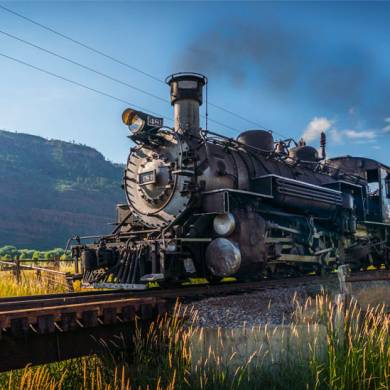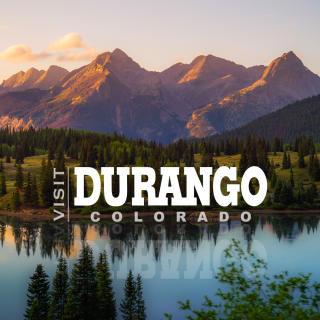Camping Etiquette In Durango
Durango, Colorado is nestled right into the La Plata Mountains - and by extension, the San Juan Mountains. This makes for gorgeous scenery and the perfect place to hit the trail for a weekend (or longer). Because of this, the region receives a large number of campers throughout the year, and camping etiquette is a big concern.
Everyone maintaining proper etiquette accomplishes a number of goals, including keeping our campground and natural habitats clean, protecting local wildlife, and providing campers with a safe fun experience.
Whether you are a seasoned enthusiast or setting up a tent for the very first time, it is important to know and respect the fundamental etiquette of camping.
Here we will discuss the most important principles of camping etiquette:
Leave No Trace
Pack it in, pack it out. Whatever materials you bring in need to be kept track of and taken with you.
This includes bigger objects like clothes and bottles all the way down to small bits of waste like bottle caps and cigarette butts.
Any great way to maintain your garbage is to purchase a reusable trash dry sack to use throughout and to do regular thorough clean-up and a final check before departing your campsite before departure.
As far as solid human waste, catholes continue to be the most efficient way to handle them. Be sure to dig your holes at least 200 feet away from water sources - or your camp or any trails. Avoid placing them directly uphill from said water sources as well.
Finally, keep soap, lotion, and bug spray to a minimum, as they can destabilize freshwater ecosystems - especially if you plan on swimming or bathing.
Be Mindful of Quiet Hours
Loud noise can and does disturb fellow campers as natural wildlife alike.
Sources of loud noise can include loud chatter and yelling, instruments/music, electronics, and even generator and OHV usage.
Rules on quiet hours vary depending on the campsite, so be sure to abide by them if they are posted, and make a good, conscientious effort to reduce your noise even if they are not.
This extends to physically intruding on their space as well; give other campers their privacy.
Respect Fire Restrictions
Obey fire bans and fire restrictions that are set in place.
They are put in effect due to dry, hot weather that places the area at an increased risk of wildfires, and therefore needs to be respected. This extends to fireworks, which most parks and public lands prohibit year-round.
When you do make a fire, only do so in existing fire pits/rings. Do not rip live wood from trees; scavenge for already dead wood or purchase bundles locally.
Do not bring in your own wood from home, as this has shown to increase the spread of invasive insects and tree-borne diseases that threaten forests.
When you are finished, smother the fire with water, and do not leave the area until it is cool to the touch.
Be Aware of Bears
Durango is in black bear country, so campers need to be prepared for the safety of themselves and local bear populations. The list of to-dos with bears is rather long, but here are the most important.
And keep your distance under all circumstances. A minimum of 100 yards is recommended at all times. There is still a lot of debate around the effectiveness of bear spray (primarily due to lack of immediate access in emergencies), but it is worth considering for your pack list.
Prioritize low-odor, high-energy foods, like rice, beans, tortillas, oatmeal over meats, and especially fish. Pack food and food scraps in odor-proof bags, and string those up within bear bags/barrels high into a tree at least a few hundred feet away from your campsite.
Clean up food immediately after meals, do not bury garbage, and never keep food in your tent.
Be Aware of Other Critters
Even if you do not see them, animals of all shapes and sizes live in the region you are camping in. Campers need to be cognizant of their presence, as we can accidentally disrupt their lifestyle, harm or aggravate them.
Do not feed them, be careful to properly store food and leftovers, and give plenty of space when you stumble upon them or their nesting place out in the wild.
Conclusion
Camp etiquette is for the benefit of yourself, others, and natural ecosystems.
Please take the time to follow up on the specific rules for a campground or public land you are visiting, as they can differ by location and are subject to change.
If everyone takes time to learn and embrace these rules, we can all have awe-inspiring experiences outdoors while not being a threat or intrusive to local wildlife and the ecosystems we all share.



